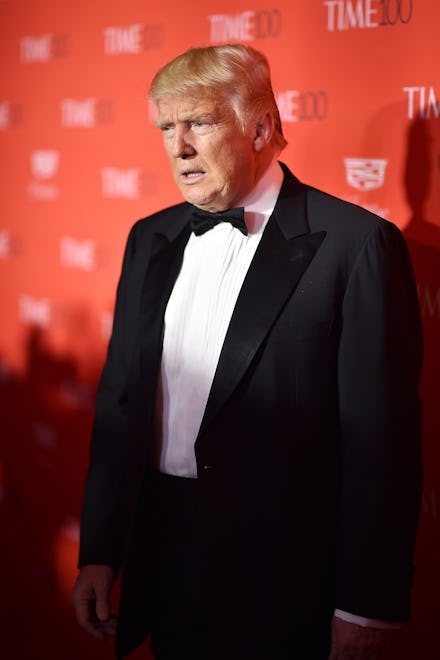Why did Trump win ‘Time’ Person of the Year over Clinton? The title’s complicated legacy

Wednesday, Time editor-in-chief Nancy Gibbs sat down with Today hosts Tamron Hall and Matt Lauer to unveil the magazine's Person of the Year, which was awarded to President-elect Donald Trump.
When the Today presenters asked Gibbs about why Trump topped the list — which also included Hillary Clinton and the "Hackers" in second and third place, respectively — she responded:
When have we ever seen a single individual who has defied expectations, broken the rules, violated norms, beaten not one, but two, political parties on the way to winning an election that he entered with a hundred to one odds against him? I don't think we have ever seen one person operating in such an unconventional way, having an impact on the events of the year quite like this.
In reference to Time's cover title "Donald Trump: President of the Divided States of America," Gibbs went on to say that "we always remind people it's the person who has had the greatest influence on events, for better or worse." When Matt Lauer asked her if the magazine takes a stand on whether it's for better or worse, she explained that "the voters took their stand." However, Time readers voted for Indian Prime Minister Narendra Modi, who received 18% of the vote, while Trump got 7%.
That the Person of the Year is the one who is noteworthy — rather than being someone who represents moral leadership — is the award's most troubling legacy. As a result, Trump's choice as 2016 Person of the Year now joins the ranks of other controversial selections:
1. Adolf Hitler (1938)
When selecting Hitler as the "Man of the Year," the magazine wrote:
The figure of Adolf Hitler strode over a cringing Europe with all the swagger of a conqueror. Not the mere fact that the Führer brought 10,500,000 more people (7,000,000 Austrians, 3,500,000 Sudetens) under his absolute rule made him the Man of 1938.
2. Joseph Stalin (1939 and 1942)
The magazine offered the following description of Stalin:
On the death of Lenin in 1924, Joseph Stalin took control of the Soviet Union, instituting policies of nationalization and agricultural collectivization that fomented civil war and famine as well as cultivating a cult of personality. ... He became the fountain of all Socialist wisdom.
Stalin established a regime that led to mass arrests and executions.
3. Ayatollah Ruholla Khomeini (1979)
"He remains a powerful symbol to Iranians even after his death in 1989," wrote Time. "Rarely has so improbable a leader shaken the world."
According to an article by the New York Times in 1979, there was no visible reaction from the religious leader when he was notified of the award.
4. Vladimir Putin (2007)
The magazine said of Putin: "His final year as Russia's President has been his most successful yet. At home, he secured his political future. Abroad, he expanded his outsize — if not always benign — influence on global affairs."
5. You (2006)
No, you did not commit crimes against humanity like Hitler or Stalin, but this selection drew harsh criticism. David Graham of the Atlantic called the award "gimmicky" and asked readers to ignore the prize. At the same time, readers picked late Venezuelan leader Hugo Chávez and then-Iranian President Mahmoud Ahmadinejad as their top choices in Time's 2006 online polls.
What the readers are saying
Trump's distinction as "Person of the Year" drew the ire of Twitter users:
Others felt Clinton deserved the Person of the Year award:
Others, including Infowars host Alex Jones, celebrated Trump's selection: